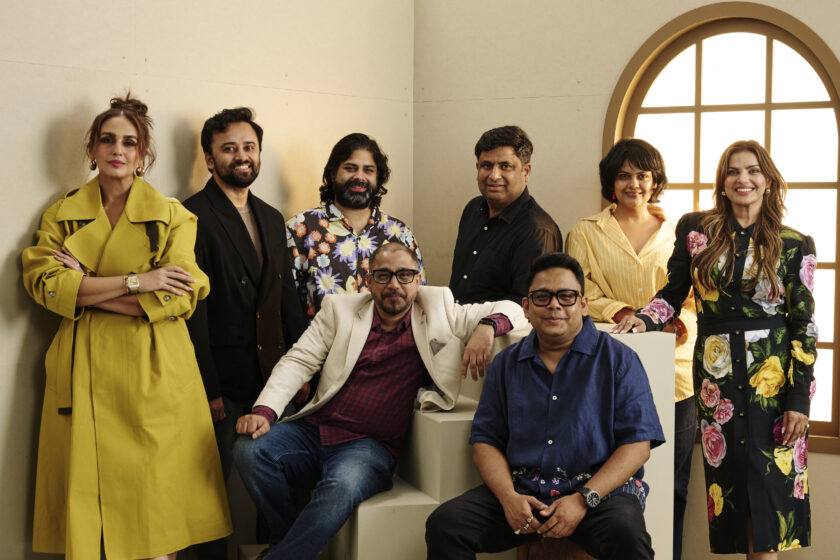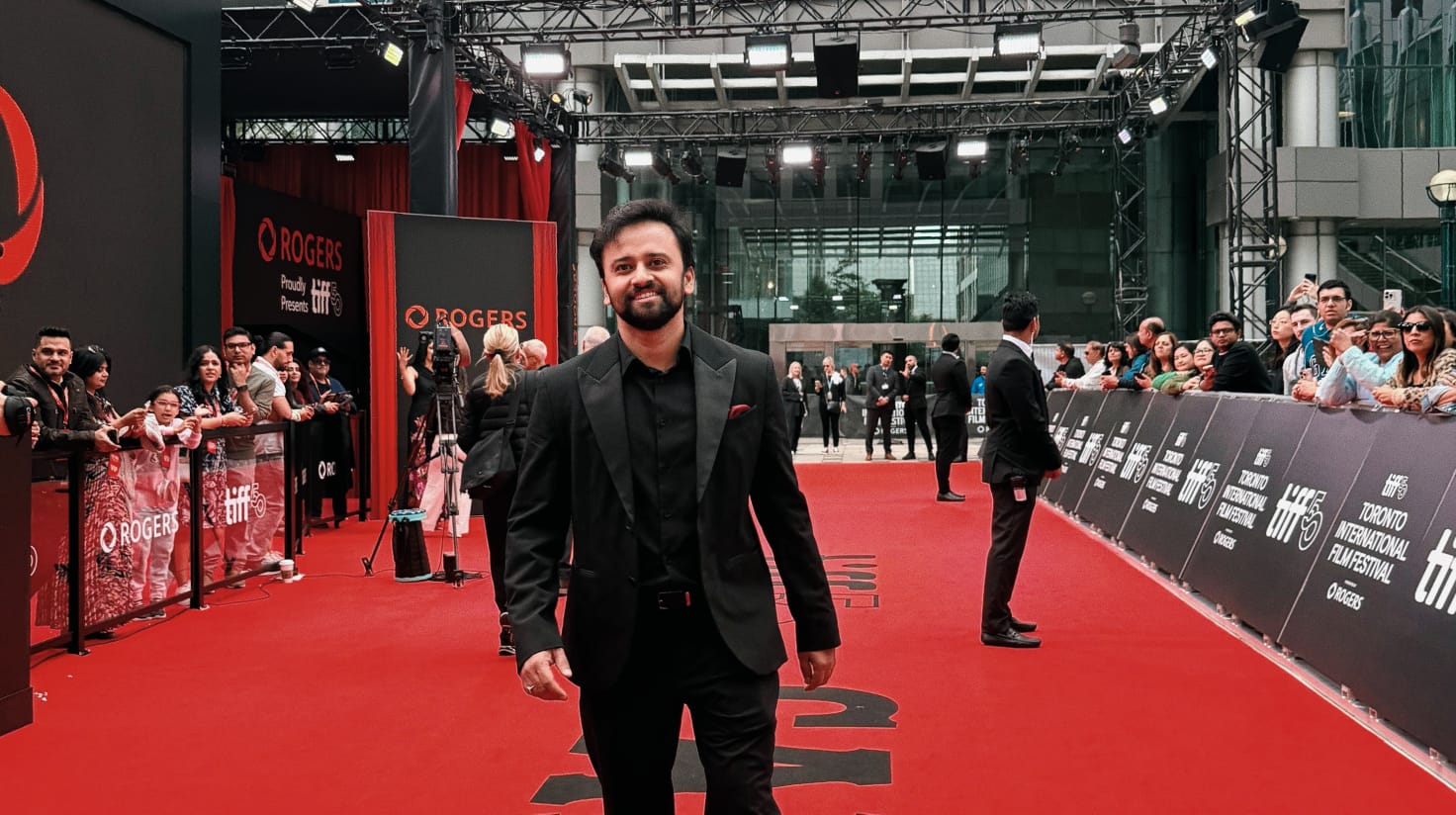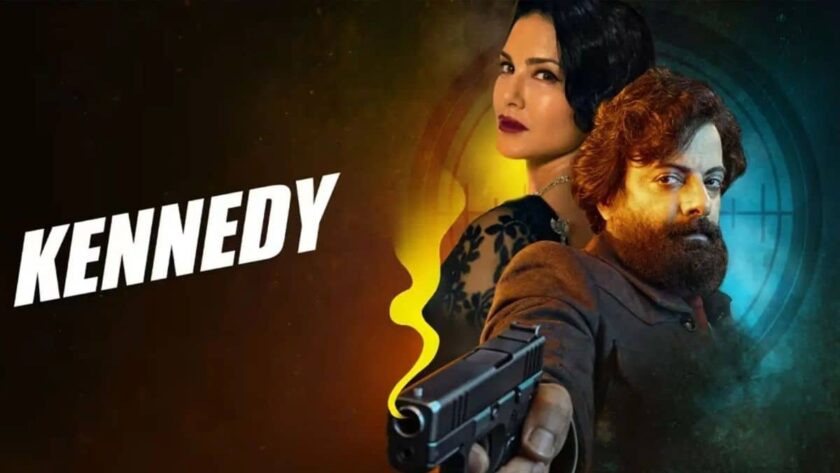Lucknow: Lucknow-born actor Vibhore Mayank is making waves on the international film circuit with his critically acclaimed performance in Bayaan, now featured at the Toronto International Film Festival (TIFF) and the Busan Film Festival. After 14 years of perseverance, auditioning, and honing his craft, Mayank’s dedication has finally borne fruit, earning him recognition on global platforms. In this exclusive interview with The Lucknow Tribune, he delves into his journey—from his early days in Lucknow, his strategic move to Mumbai, and the challenges of survival through small roles, dubbing, and assistant work, to his lead debut in Chitrakut and the nuanced demands of Bayaan.
He shares candid insights on collaborating with stalwarts like Huma Qureshi, the rigorous preparation required for playing an investigation officer exploring blind following and cults, and the significance of working with established actors to reach wider audiences. Vibhore also reflects on the role of his methodical training at Whistling Woods International and how his problem-solving mindset kept him motivated throughout years of struggle. The conversation offers a rare glimpse into the mind of an actor committed to authenticity, craft, and storytelling that resonates globally. EXCERPTS
Q – How was your experience working alongside Huma Qureshi in Bayaan?
A – “Collaborating with Huma Qureshi was a fantastic experience. She’s a remarkably dedicated and talented actor, and seeing her commitment to the character and the film’s challenging subject matter was truly inspiring. Her professionalism on set and collaborative energy certainly helped elevate the overall performance in Bayaan.”
Q- Bayaan has been featured at TIFF and Busan Film Festival—how does it feel to receive international recognition after 14 years of struggle?
A – “The validation of seeing Bayaan showcased at festivals like TIFF and Busan is profound. After 14 years of looking for work and auditioning, this moment of international recognition is the fulfillment of my long-term goal: to be part of a project that reaches prestigious global platforms. This achievement was truly made possible by the vision and efforts of our team, especially Director Bikas Ranjan Mishra and Producers Shiladitya Bora and Madhu Sharma. Their commitment ensured that a powerful Indian story could not only be made but could also travel to, and resonate with, a global audience.”
Q- Understandably the film explores blind following and cults. How did you prepare for such a nuanced role?
A – “Preparing for my role as an investigation officer exploring a crime around blind following and the structure of cults demanded a very methodical approach. My process focused on drawing personal parallels from my own life and then chipping away parts of myself that were not true to the character. This allowed the character’s emotional reality to deeply resonate with my own, ensuring there were fewer elements of a conscious ‘performance.’ The goal was always to achieve an organic expression rooted in truth, completely avoiding any descent into melodrama.”

Q – How has your journey from Lucknow to Mumbai shaped your career as an actor?
A – “My move from Lucknow to Mumbai in 2011 was less about a leap of faith and more about an unshakable sense of purpose. I felt an immense amount of happiness because just reaching Mumbai felt like an impossibly distant dream come true. The core thought I had was that I absolutely had to make this opportunity count. The focus to make it work was fueled by the savings I had strategically built up by selling insurance during my final year of engineering.”
Q – What challenges did you face in the initial years while doing small roles, dubbing, and assisting on projects?
A – “My time at Whistling Woods International (2011-2013) provided essential structure and profound learning but after graduation I had to solve the ‘survival’ problem by identifying a skill I could monetize immediately: dubbing, leveraging my strong spoken Hindi. Alongside that, I realized I needed a stronger network. I overcame the problem of casting directors forgetting me by becoming a casting assistant myself, working with professionals like Mayank Dixit. This strategic move ensured I was visible and guaranteed regular audition opportunities.”
Q – How did your lead debut in Chitrakut influence your approach to Bayaan?

A – “Chitrakut was an invaluable professional debut; it was the film where I learned how to use the process I have learnt over the years. The key lesson was the necessity of efficient, thorough preparation for a low-budget, fast-paced shoot. I learned how to internalize a reactive and vulnerable character like Debu so completely that I could access that emotional state immediately upon demand. This discipline of quick and deep emotional readiness was fundamental for the more complex and demanding emotional landscape of Bayaan.”
Q – How important is it for you to work in projects with established actors and wider audiences?
A – “For an actor who has spent years building a career on the periphery, working with established actors and reaching wider audiences is incredibly significant. It’s a chance to learn from the best in the business and operate on a larger canvas. Crucially, it fulfills the desire to have my work and the powerful stories I choose to tell, like Bayaan, reach the largest possible section of the audience. The ultimate goal is to connect, and wider exposure achieves that.”

Q – Can you share any memorable experiences from the Toronto or Busan Film Festival screenings?
A – “Both the Toronto and Busan festivals were a reward in themselves. The most memorable aspect wasn’t the ceremony, but the palpable, deep respect for cinema. It was the moment during the Q&A sessions where you realize that the performance and the film’s powerful theme have truly resonated with an international audience. It serves as solid proof that performance-based Indian stories can connect globally, which is truly the highest honor.”
Q – As per latest reports you have two more offers which are under discussion—what kind of roles are you hoping to explore next?
A – ”Following the global attention Bayaan has received, I’m actively engaging in discussions for new projects.I am keen to take on roles that are complex and engaging and told with innovative execution. There is a very interesting film about a man investigating his own murder which I am very optimistic about. The goal is to continue selecting projects that are both meaningful and entertaining.
Q – How has your training at Whistling Woods contributed to your acting approach in films like Bayaan?
A – “My training at Whistling Woods International under our HOD Rob Reece, who is a lifetime member of The Actors Studio, was the bedrock of my acting approach. That program taught me a comprehensive, amalgamated method rooted in the lineage of Stanislavski, Strasberg, and Adler. This process provides the rigor for script analysis and deep emotional work. It was this methodical training that enabled me to approach the layered and contained character in Bayaan and ensure the performance was organic and completely in the moment.”
Q – Looking back, what kept you motivated during the 14 years of perseverance before achieving this international acclaim?
A – ”The constant, non-negotiable factor that sustained me through 14 years was my problem-solving mindset, not blind hope. Motivation came when I successfully solved some of those problems. Every challenge—be it saving money, finding auditions, or securing good roles—was just an immediate problem that needed a long term solution. This attitude drove me to save up by selling insurance, use dubbing work to fund my life, and even pursue the General Management program at IIM Bangalore to understand the business side of the industry. My motivation was to solve the problem in front of me to secure the professional success I was chasing.”









